I was about 500 kilometres into my journey when my mood changed, quite suddenly, and quite markedly. It wasn’t something I was expecting. Over the prior 21 days the steady, quiet rhythm of the walk had induced in me a new beat to my internal life. It was established within me, so much so that I could no longer feel how I had felt before, and could not imagine feeling any different in the future. And then, within just a day or two, the inner peace turned out to be just a truce, and it was over. Just writing about it, I have to take a deep breath, to remind myself of where I am. In fact, I suggest you do the same too - a long, steady intake of air into your stomach, and hold it, and then release - for this concerns all of us.
I started walking with only the vaguest of intentions. I knew I was reaching the end of a period of my life, and I wanted to mark it, somehow. The previous twenty years had opened with a decade marked by spiralling mental distress. External chaos — loss, disinheritance, riot and death — was matched in the psyche by depression, heartache, anger and grief. The next ten years was a slow recovery, the gradual clawing back of control. It seemed important to do something that let myself and my body know that the fight was over. The nadir of this struggle for control had come about a decade in, almost exactly halfway between my mother’s savage and meaningless death and the start of my journey, when I had washed my face in the saltiness of the Mediterranean and began walking to the Atlantic. This halfway point was probably the closest I got to breaking down. That sounds dramatic, and that’s because it felt like that. Yet the most dramatic psychological turmoil isn’t necessarily the worst. The years before, in that first decade, were far more terrible. It was the quiet solitude of depression, hopeless and intoxicating, that had brought me to my lowest points. It was just that halfway through, when depression no longer had the capacity to hold the unspoken grief, it overflowed into something more public. Once my wheels started squeaking, I had to get out the grease.
It was a bad breakup that flipped the switch, I think. He was far from a bad person, but I think he was scared — of being alone, of being unloved or even unlovable. He’s hardly the first to feel that. I felt that too. To relieve his fear he did things that hurt me, and I couldn’t take it. I was sitting at work one day, right in the middle of it all. We still lived together, and the thought of going home to him, or perhaps the thought of him not loving me anymore, began to spin me out. I sat on my office chair, twisting it this way and that, looking out onto the rainy Soho street, and I was filled with an overwhelming terror. It was almost breathless and exhilarating in its power, the sort of instant, shocking fear you get as a child when you stick your finger in a hole and it gets stuck and won’t come free, the sort of fear when you’ve done something bad and you’ve been caught out for it. Part terror, part humiliation, it takes over your brain. Its sharp, spiky tendrils rush through your synapses, flooding your mind like a glass of ice cold water sliding down your dehydrated gullet and into your guts on a baking hot day. This was my first experience of a generalised anxiety that would first cohabit with, and then evict, the depression. It was like a war, or an alien invasion. I ran out into the streets, looked up at the sky, and knew I had no one I could call who could solve this situation.
For the first week or so of the journey, I was so overwhelmed by my own body just existing that I didn’t have much time to think. As I walked out of the Mediterranean Basin and up towards the Hoya de Huesca I felt trapped between the sun and the earth, the muscles in my feet tearing and the skin rubbing through contact with the tarmac pavement. Meanwhile, from above and below, an oppressive heat seemed to dry me out from the inside. Each night I’d lay down totally exhausted, unable to write, read, or even think. One morning I awoke after a few snatched hours of rest in a walled yard that surrounded a tenth century hermitage, balanced on a precipice above a river. In the valley below the hum and clatter of a huge textiles mill had prevented me from drifting into a comforting sleep in which I might have imagined I was a mediaeval pilgrim taking refuge from the wild boar who growled at the gates of the churchyard. Instead, as I stuffed my sleeping bag back into my sack, the sky still dark, the boar still growling, I felt drained, unable to face the steep climb up the cliff to the monastery. I managed it, in the end. The sight of mountain goats clashing horns on the rocks overhead provided some sort of encouragement as I pushed through the clouds. It was the start of a daily process of acknowledging, coming to terms with, and then ignoring the minor discomforts. Those discomforts seemed familiar; they produced the sort of thoughts that chatter away at the front of your mind all day, occupying your mind to the exclusion of deeper thoughts and cares.
My mind had begun to settle by the time I left Catalunya. Walking across the vast agricultural plains that spread out across Aragón, each day replicating itself in long treks through fields of grains, the anxiety was subsumed. I felt small, joyfully small, almost invisible in the landscape. I wasn’t alone — there were rabbits and snakes and endless variations of songbirds and birds of prey — but I barely met any other people, besides talking with farmworkers as we had mid-morning coffees at the bar. The rhythm of walking allowed for something else to happen; a sort of silent thought below the chatter, slowly processing everything that flows daily beneath it. I felt like I was walking away from anxiety, as though I could outpace it through stamina alone. If anxiety were a little gland located somewhere in my body, it was being exhausted through overuse. My legs were stronger than it, my resolve faster, and eventually it started to sputter out. I would take that deep breath, deep into my stomach, and flood it. For the first time in a decade, I spent days without even the smallest taste of anxiety.
Is that good? An easy revelation? It’s sometimes infuriating to learn these things, like the first time you take ecstasy when you’re young and depressed and realise that you can feel deep joy, and its elusive absence from your life is not some moral state, not something deeply you. Bringing these states of being so close makes them feel even further away. You end up beating yourself up about it. If I can feel like this, why can’t I?
The plains swept up to foothills a few days past Huesca, and for the next week I passed through mountains, colder than before, from Aragón into Navarre. My long stretch struggling to find provisions also ended; for a few nights I could eat well. Pork loins and stews, salads and grilled vegetables, fat fried potatoes and meatballs. I’ve no doubt this contributed to this new equilibrium. I made my needs simple, and met them. I had started in Barcelona on the Cami de Sant Jaume, a quiet, infrequently used route of the system of ways that make up the Camino de Santiago. The northerly option on this way then reaches the Camino Aragónes, which also sees very little traffic. Passing through Navarre, I eventually reached the Camino Frances, the most popular of the historic pilgrimage routes towards Santiago de Compostela. The difficulty, when it came, the change in mood, started as I joined this new trail. The difference was people. For comparison, only a couple of hundred a year walk the earlier routes, while tens, even hundreds, of thousands of pilgrims walk the Camino Frances.
It was a strange encounter, almost alien, to descend from the burnt-out forest and into the busy pilgrim town. From a small church perched on the ridge my path led down a steep slope, and the bustle of the arriving pilgrims on their route, which approached from the plain on the other side of the monastery, seemed to float up to meet me. For weeks I had arrived into deserted villages and found locked albergues. I had dialled numbers pinned to doors, and waited for an hour until a kind old lady or a gruff middle-aged man had wandered across the square to unlock the little hostel for me. I had enquired in bars and social centres for keys to unknown bedrooms. Suddenly I was waiting in a queue, and after handing over my ID, received a rundown of services available to pilgrims. That night I washed my few sets of pants and shirts in a proper washing machine for the first time since I had left, and watched as weary but excited travellers, just a few days into their journey, chatted and made friends with each other. I ate alone, disoriented by conviviality, but as I lay in my bunkbed in a dorm packed with a hundred other pilgrims, there was a sense of relief. At last, any struggle from now on would be shared.
Over the following week, relief cooled and dissipated. As I got chatting, I heard others talking about their experiences. Veteran travellers remarked how busy the route had become, and I had no reason to doubt them. Some worried for its future. Others thought the charm had gone. “Phone ahead,” some said, “I’ve heard that the pilgrim’s hostels are booked up days in advance”. Each night, as we sat on long tables, I became soaked in this low-level worry. I started getting up earlier, and rushing through my day to try to get to the hostels before they all filled up. It became a preoccupation, not knowing whether I would find a bed for the night or not. In other words, anxiety.
What was strange was the degree to which sharing anxieties became a form of socialising. It would be one thing if these were shared adversities, but they weren’t. Anxieties were negative hopes. They weighed upon us all, bad memories sent from the future, and we bonded over them. Why were we sharing them? This one specific fear, that we would be left without a place to stay, came from those who had walked this route many times in the path. I have no reason to doubt that the way was busier than usual: numbers had been low for the previous few years due to covid, and so now, with restrictions securely lifted for most of the world, there were a couple of years of postponements all coming at once. But doom-mongering, I came to realise, was less something borne of a problem than a way for veterans to distinguish themselves as old hands. It was a search for status, a little negativity as a mark of expertise.
I had felt this energy before, my entire adult life, experienced it, indulged in it, practised it. This band was better before you first heard it. This bar was more fun before you arrived. This neighbourhood is dead, you should have been here a year ago. The desire to feel like an initiate, more knowledgeable and more astute, is a machine for anxiety in those whose newness and naivete is the necessary foil for your experience to resonate against. Authenticity is contaminated; I once knew something real, but you just witnessed its reproduction. Some things are out of our control, yet it is demanded that we take responsibility for them. When the veterans talked about too many new people they clearly didn’t mean to refer to me. But was I not too many new people too? Faced with our own impotence, what can we do but worry?
Take a deep breath again. I am. I really think, speaking from my heart, that anxiety is the defining characteristic of my generation, and the immediate generations that follow. Once I saw it in myself, and saw my own fearful responses manifesting, I saw it in everyone else too. Yet the projection of a fear of something that may or may not happen is almost impossible to counter. In culture and society, new rules, limits and borders seemed to exist everywhere as a futile attempt to produce certainty. Identities become not expressions of meaning but vessels of containment; once something spills over that vessel, a new one must be created, for fear that uncontained, it contaminates. Childhood is extended, from relentless remakes of nostalgic franchises to a prolonged period of adolescence in relationships to the self-infantlising of “adulting”, in the hope of conjuring with it some of those sureties and reassurances of our own childhood years. We are constantly making bets against our own agency, our own ability to face the unknown problems of the future. Our urge towards clarity, crispness, towards firm and fixed categories, towards knowing who is to blame: these feel to me like responses of fearful people hoping to create certainty where there is none. In the end, we just make more things to fear.
I had seen and recognised these tendencies before in my life, but watching them emerge from cut cloth in an entirely new environment, with a whole fresh cast of characters, was almost uncanny. What I wasn’t expecting was the degree to which we all made anxiety our identity. We would rise before dawn to beat the crowds, and when a familiar face arrived at a hostel, we would congratulate them on finding a bed in time. We would pass around shared rumours about overflowing towns, or unbooked hostels. Fear became a preoccupation, and a handmaiden to resentment. It seemed suddenly unfair that some people shipped their bags ahead, lightening the load and arriving first, and I brooded on them as I approached the town and made plans for my inevitable bedlessness. Somehow, being anxious transformed us, and fed itself, producing new fears and worries.
In the end, this situation never happened, and even had I been slow, I doubt I would have been left stranded. There was only one town I visited where there was only one hostel (the other had closed for renovation) which had filled to capacity, and even then, the hospitalero had phoned the town’s mayor, who had opened the municipal library for pilgrims to rest. Yet this shared culture of anxiety continued. After a few weeks, I realised not just the absurdity of taking these claims as truth, but the damage that allowing myself these anxieties was doing to my own self. Anxiety, whether about status, youth, control or just a bed: it breeds resentments that poison the ability to act for ourselves. We surrender agency to helplessness, and then feel helpless. Once that clicked, I stopped trying to book ahead. Some mornings I would sleep in, leave late, take a detour, and inculcate in myself a new belief: it will be provided, and if not, I am capable of finding it. Sometimes, I cut myself off from conversations that I knew wouldn’t help me. Anxiety is such a powerful and overwhelming force that it’s easy to understand why we let it define us. But anxiety is an emotion, a fear response. I can recognise that I experience it, but it is not my identity, nor my culture. When I make it part of who I am, how can I hope to see it as something I can overcome? But overcoming anxiety is possible, if only for a while. I can’t tell you how good it felt to walk away from my fears — something to remember for when they come back.
‘Utopian Drivel’ is written by me, Huw Lemmey. If you’re a paid subscriber, thank you so much for your support. Please do forward this to anyone who might enjoy it.
If you aren’t a paid subscriber, please consider subscribing; paid subscribers also help support free subscribers. Paid subscribers get access to the entire archive of 100+ essays, including posts such as this essay on psychedelics therapy, humiliation and masculinity, this story about Saint Sebastian, their piece on mysticism and the “blabryng fleschely tongue”, and this essay on watching the Queen’s funeral at a gay sauna. Free subscribers get occasional posts, like this guided walking tour around London’s world of queer espionage, this double-header on the Gay History of Private Eye magazine, or this essay on the limits of gestures of allyship.

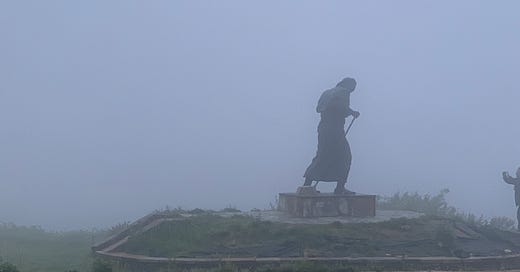


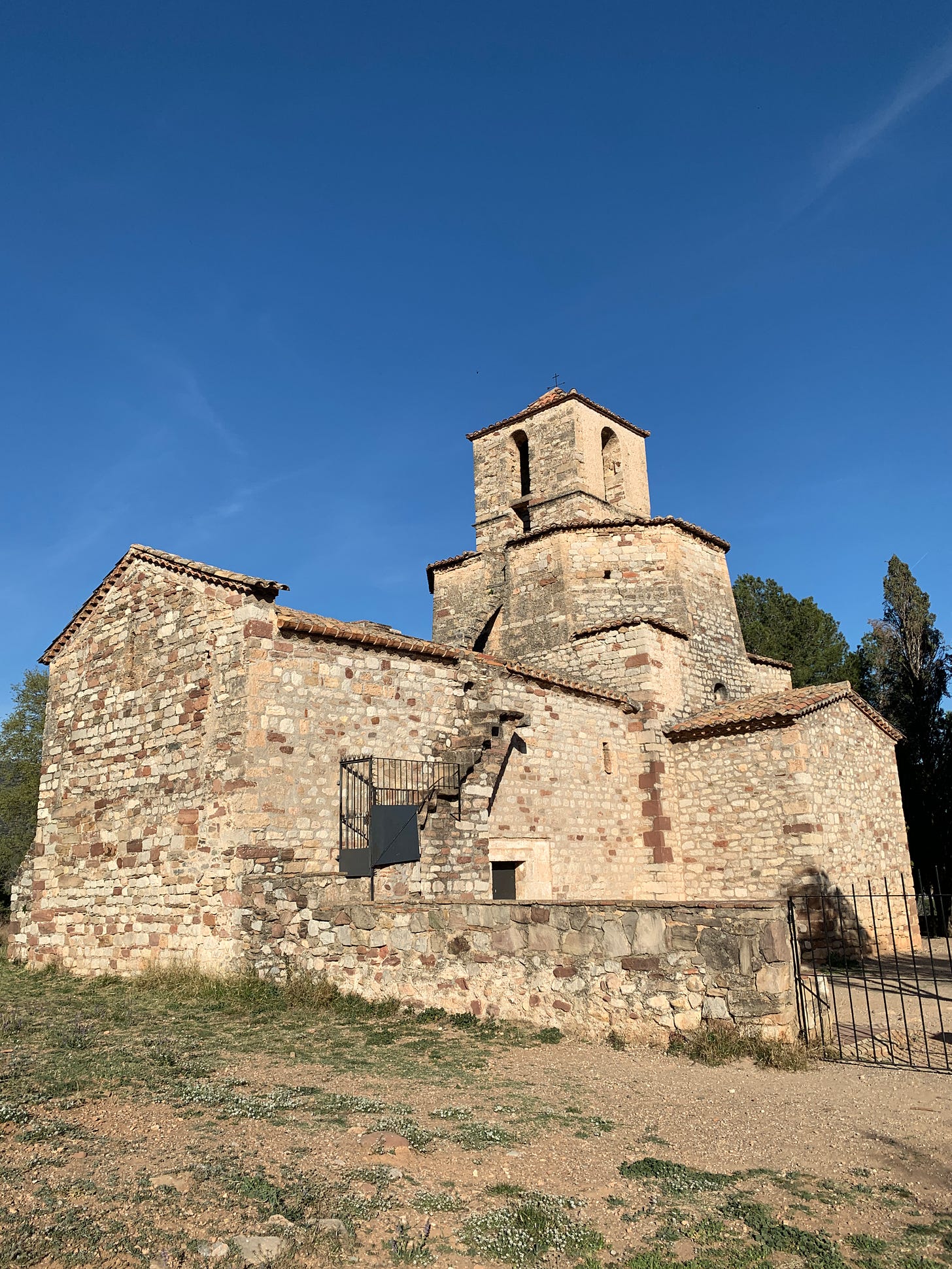
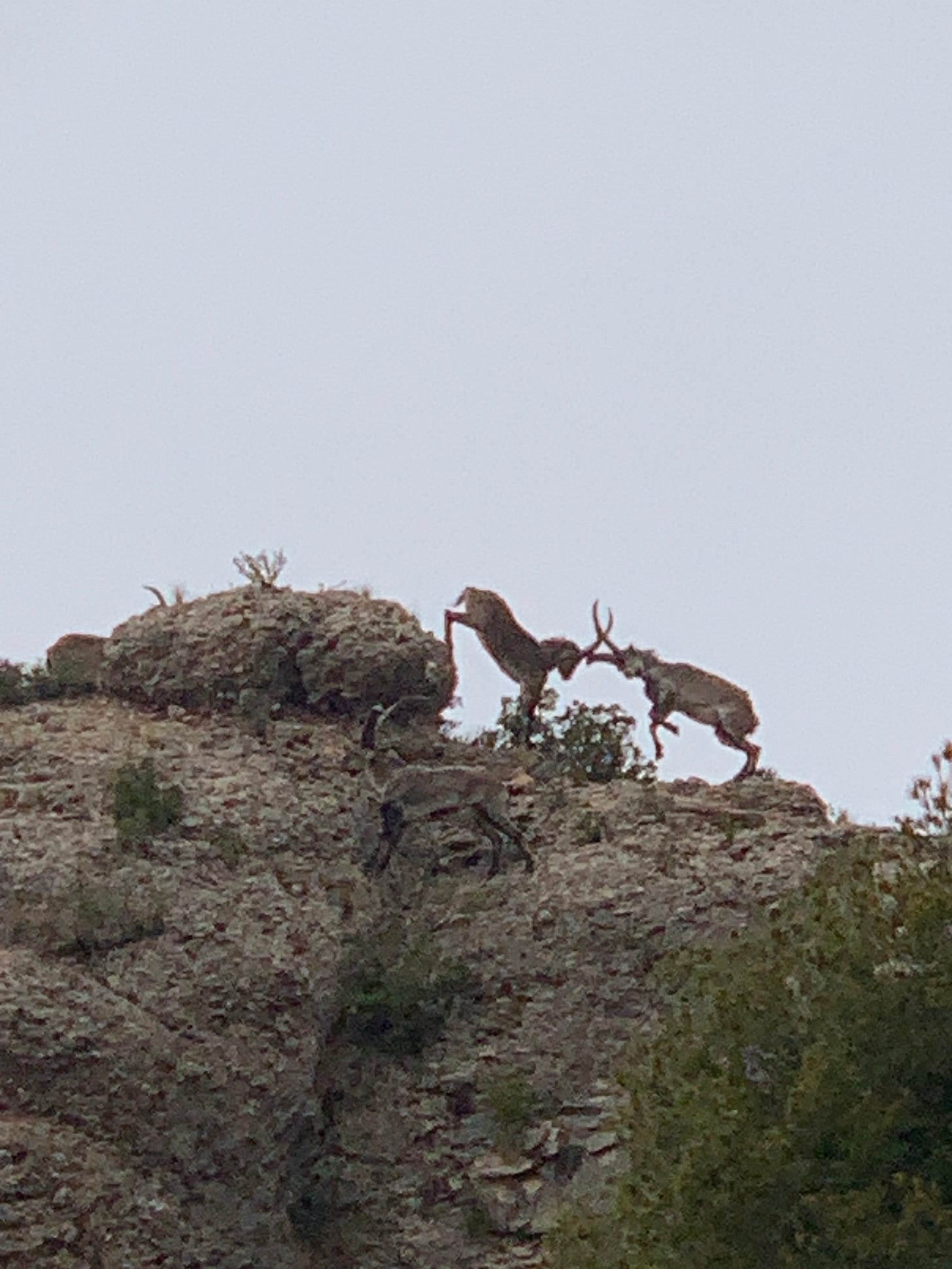
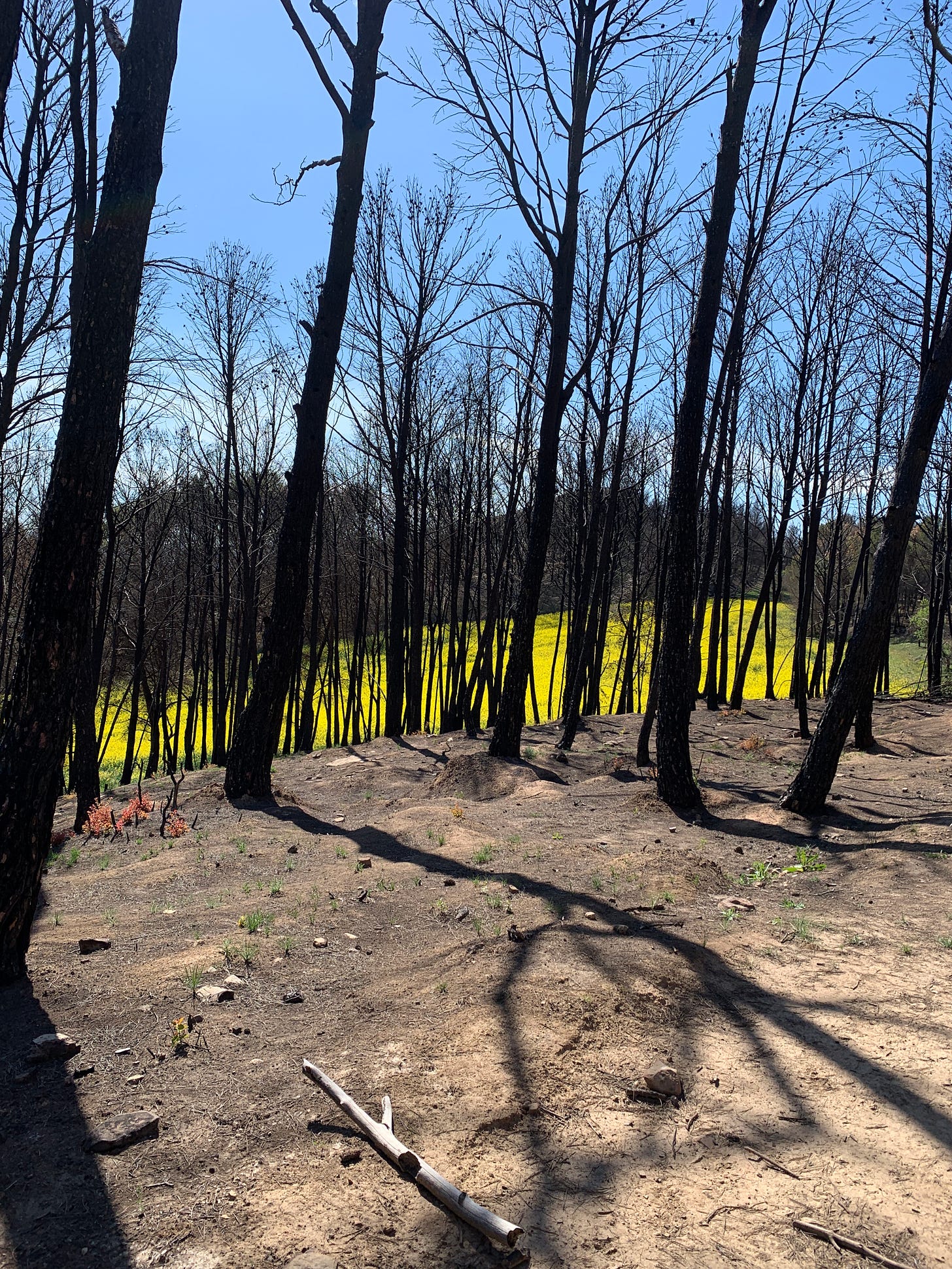
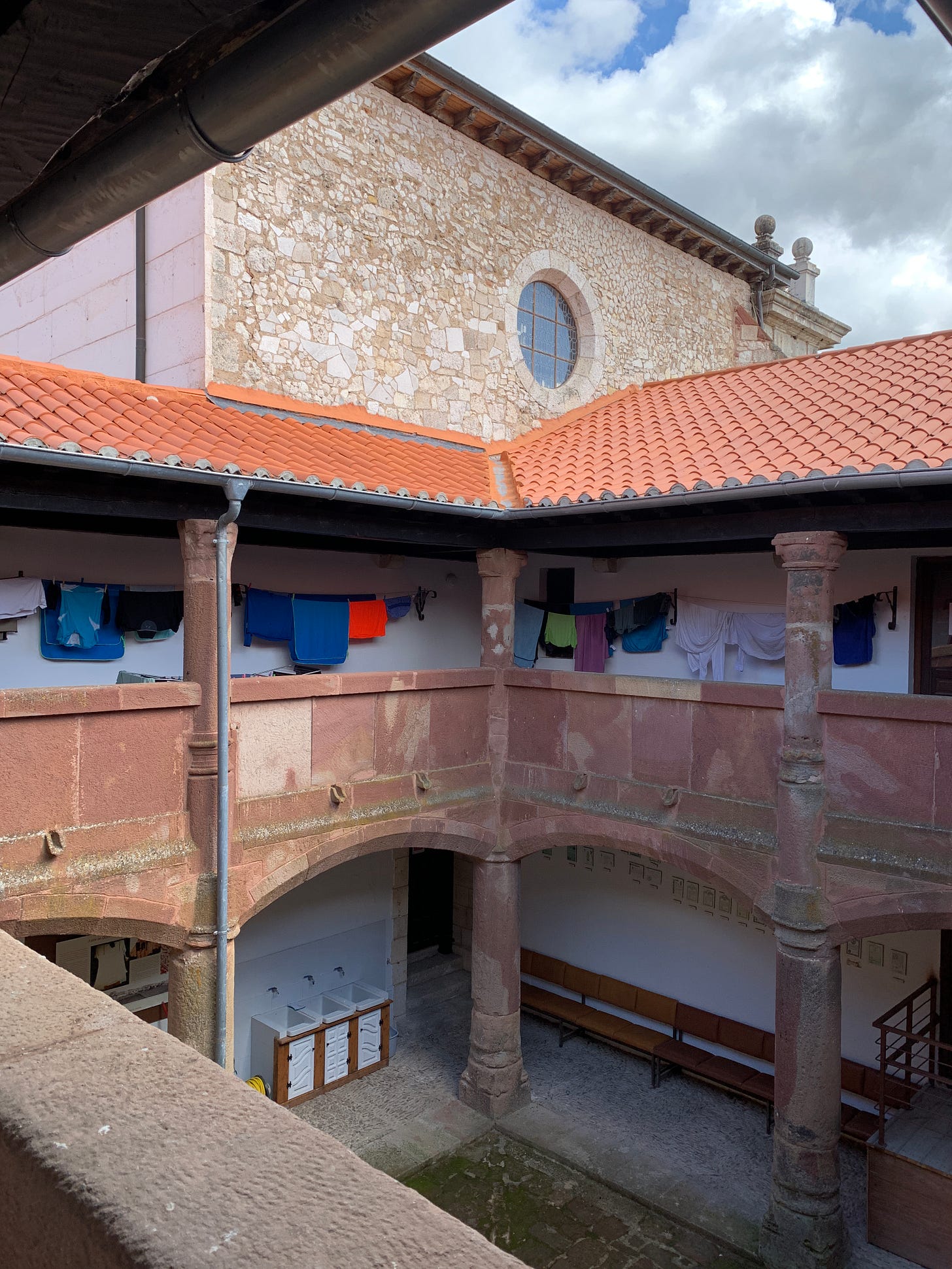
"it will be provided, and if not, I am capable of finding it" is such a beautiful sentiment to keep in mind, i'll be writing that one down.
I felt like I read this at the perfect time. As someone who struggles with anxiety, I got so much hope from reading this and it felt like I was not alone. I loved the way you ended it by saying " I can recognize that I experience it, but it is not my identity, nor my culture... I can’t tell you how good it felt to walk away from my fears — something to remember for when they come back". I keep praying that one day I will look back on these negative experiences filled with gut wrenching anxiety/fear and can laugh about it like it never affected me.